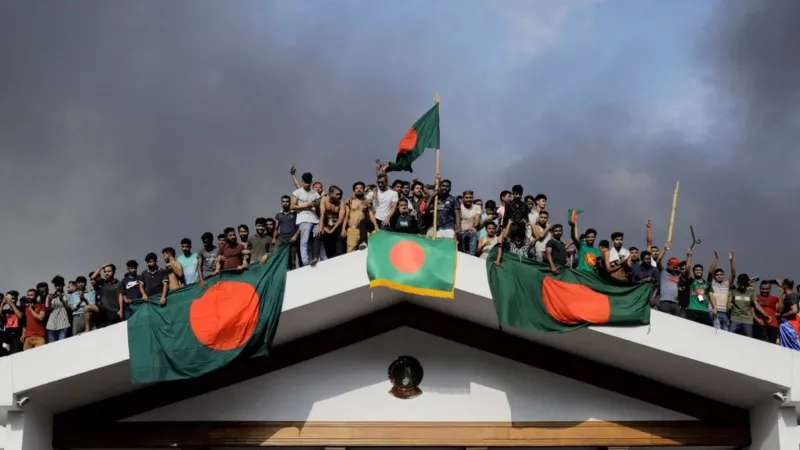Bangladeshi Prime Minister Sheikh Hasina has resigned after weeks of deadly protests against her government, ending her more than two decades in power.
At 76, she fled the country and reportedly arrived in India on Monday. People celebrated in the streets, with some storming and damaging her former residence.
Following her resignation, President Mohammed Shahabuddin released former prime minister Khaleda Zia and students jailed during recent protests. He also announced the formation of an interim government, new elections, and the lifting of a national curfew.
In Dhaka, protesters attacked and set fire to police and government buildings and tried to tear down a statue of Sheikh Hasina’s father, independence leader Sheikh Mujibur Rahman.
The army and police were deployed, and mobile phone service was temporarily cut off. Dozens of people were reported dead in the violence, with varying reports of the death toll.
Sheikh Hasina’s departure creates a power vacuum in Bangladeshi politics, which has long been dominated by a rivalry between her Awami League and the Bangladesh Nationalist Party.
The US praised the army for its restraint and called for an interim government, while the EU urged a peaceful transition to a democratically elected government. India has not officially responded.
Economist Debapriya Bhattacharya told the BBC that while there was euphoria in the streets, attacks on the Hindu minority increased, posing a challenge to the new authorities.
He emphasized the need to protect religious minorities in the current power vacuum. Hasina’s allies say she will not return to politics. Her son, Sajeeb Wazed Joy, said his family is done with politics due to the disappointment over the protests.
Critics argue Hasina’s rule involved forced disappearances and crushing opposition, but her son defended her record, stating she transformed Bangladesh from a poor, failing state to a rising Asian power.
The recent protests started over a controversial quota system for government jobs, which reserved a significant portion for veterans’ descendants.
This issue became a rallying point for broader anti-government unrest, especially among young people frustrated with the lack of political freedoms and job opportunities.
Despite the government scaling back the quotas, protests continued, demanding justice for those killed and injured and calling for Hasina’s resignation.
Protesters now expect the new government to implement democratic reforms, create better jobs, and improve the education system.
BBC provided detailed coverage of these events.
https://www.bbc.com/news/articles/clywww69p2vo

